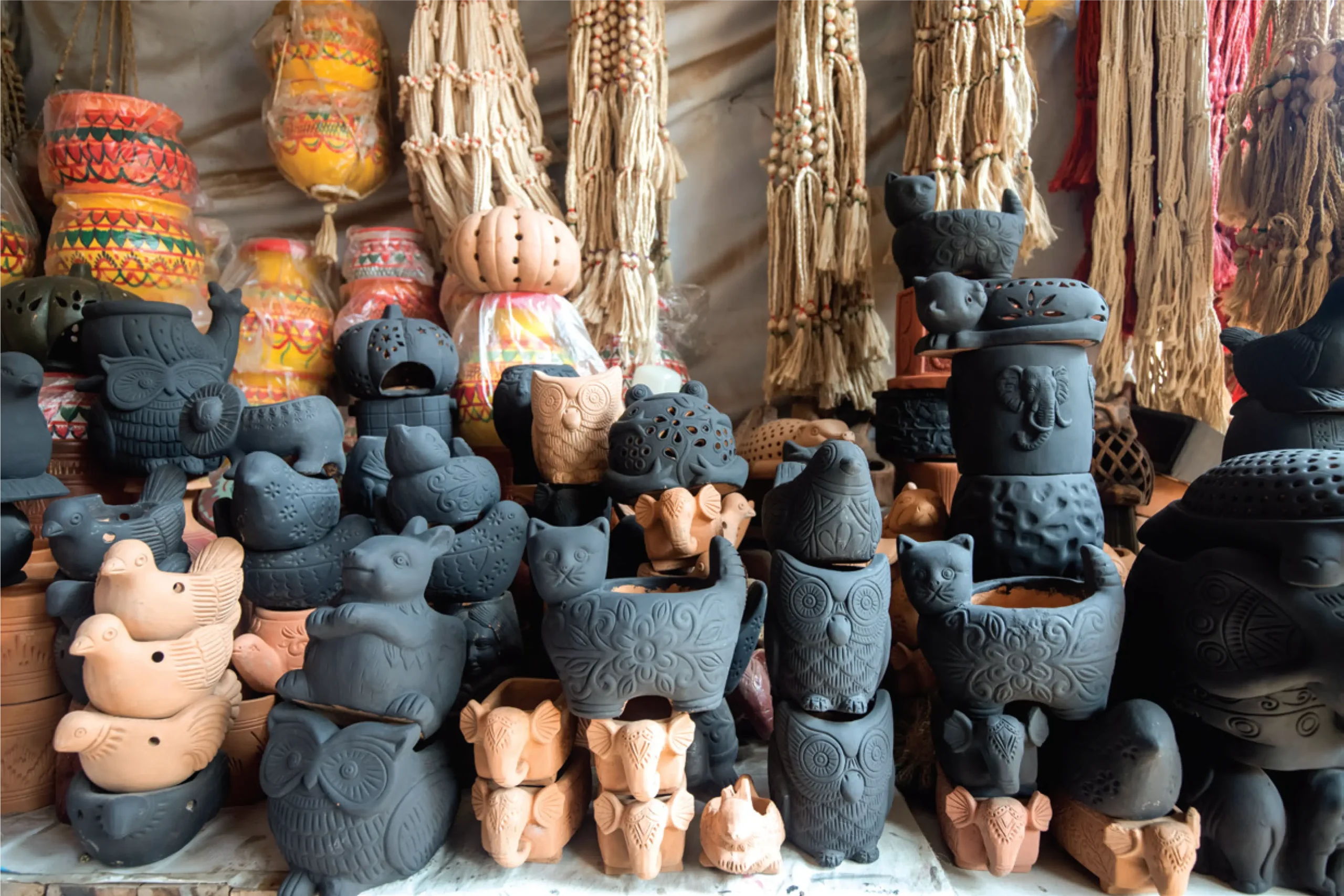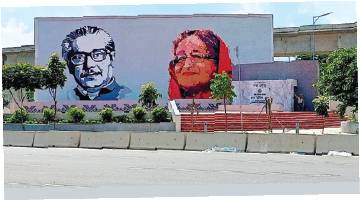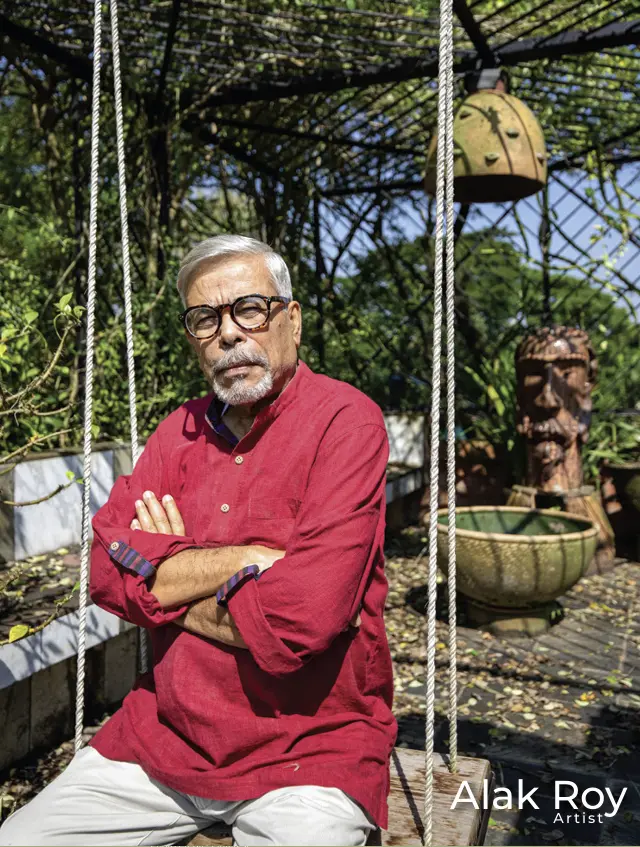
A blurred memory of seeing clay art somewhere on the Dhaka University campus, and visiting places of art, exhibitions, and festivals – are all part of socio-cultural development during our childhood. These products are home decors, visually soothing and adds a warmth in the ambiance. An urban woman would plant trees in clay pots and vases. Sometimes she would use clay tableware to serve food. Growing up, clay came into our life in many ways. Apart from the aesthetics of a clay art piece, the artifacts feel grainy when touched and can be turned into mush and moulded into something new. A younger version of us would want to break them and glue them back together with wet clay. So, finally visiting the shops on DU campus brought back the childhood memories. It took Ceramic Bangladesh authors two visits to learn the insides of the trade at Doyel Chottor Mrith Shilpo (Pottery) shops. We met three of the oldest shop owners there, and through conversation, they shared their experience – the goods and the bads.

Abul Kashem was one, a 72-year-old man, who has been in the Mrith Shilpo business for 36 years. The oldest there, the artist designs the products and sometimes moulds the clay as well.
His teenage years started with a job in a fishing trawler, and living on the water with all its waves and splashes. What scared him during his voyages on the boat were pirates. He left the job after experiencing one attack and came to Dhaka to look for work.
Mr Kashem came across merchants from the Paal community in a festival in Shishu Academy where he was running his tea stall. The merchants came from Savar’s Nobinagar area and sold some of their products to Mr. Kashem or Kashem chacha as an old man is called in this part of the world. “I got the products at a low price from them, because I bought all their leftovers,” he recalled. He sold his f irst lot in the book fair.
Kashem chacha now buys the products from Cumilla, Shariatpur, Gazipur, and Tangail. He said the Covid-19 pandemic took a big toll on his business, now it’s better, however. He makes Taka 15,000 a month by selling these products and his family lives a tight life. But he is still happy doing what he loves to do.

“All in all the business is not that bad, I mean, we are surviving here. I truck in my products from different parts of the country: Ektara from Kushtia, Lamps from Khulna, Potteries from Cumilla and so on. The Metro Rail Authority supports us now and has given us cards to claim a shop when the paperwork is done.”
Digging Deeper The biggest threat to the shop owners here, was that there is no permanent paperwork for them that could potentially protect their shops. The shops are legally said to be temporary and the Metro rail project has decreased the customer count and the buzz in the shops has come down. However, promises from a member of parliament has given them some hope. It was, however, relieving to hear that the students of the university, Charukola, VC of the University are the people behind the success of these stores. “They inspire us,” one of them said.
Mohammed Baharuddin, 52 years of age, who runs Siyam Mrith Shilpo and Handicrafts, said he came to Dhaka from Noakhali when he was 12 and now has three children. The family survives on what he earns and they are doing well.

“I have been in this business for 30 years. I met the potters from the paal community in a festival,” said Mr. Baharuddin. The teachers and faculties of DU know about the hardships of this business and also value what these shop owners do here. So, he said, 29 of them got together to write a letter to the ministry, pending a reply. “I fear that even though the chances are there, someday someone will come and uproot us from here.”- Mr. Baharuddin said.

Mohammed Saiful Islam, 53, owner of Doyel Mrith Shilpo, said “I was born in Rajshahi, in Zafapur, and before coming into this business I sold vegetables. The 1988 flood took away everything from me, so I moved to Dhaka and thought about joining the pottery business. My brother-in-law was in this business from before, and he gave me one of his two shops, and that’s how I got started.”
Mr Saiful’s son studies in Dhaka University, and this business has made it possible for him to educate his children. His daughter is also married into a loving home, and currently they live with his mother and wife in a small but warm apartment in the city.







